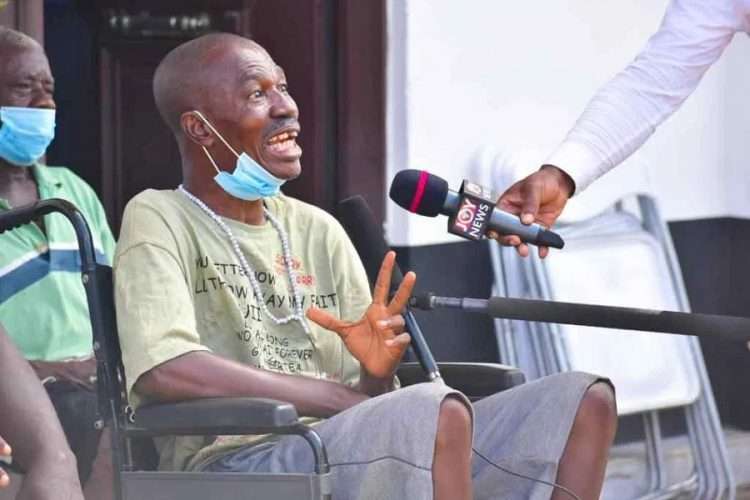Kwasi moved to the UK in 1997 and eventually obtained his British passport after 12 years. Life was tough at first, and though he relied on government benefits for a while, he later found work and settled down in Wembley. One summer, he met a beautiful woman who had just arrived in the UK two weeks earlier on a visa. He helped her get a SIM card, and that’s how their relationship started.
Unknown to Kwasi, the woman already had a wealthy sponsor back in Ghana. She presented herself as high-class, and although their relationship started off strong, things soon took a negative turn. Her papers had expired, but Kwasi didn’t know at the time. One day, she asked him for help getting a driver’s license, and it was then that he began to suspect things weren’t right.
She worked as a live-in caregiver, driving from house to house for care jobs. Their relationship was rocky—she was disrespectful and confrontational. At one point, she assaulted a neighbor, injuring his mouth during an argument. Kwasi admits he should have left the relationship early, but he was deeply entangled.
Eventually, she got pregnant. During the pregnancy, all kinds of health issues emerged, and she spent time in the hospital. Her mother, who lived in the U.S., became close to Kwasi and once told him that if he were Muslim, she would have let him marry her daughter. The woman had a poor relationship with her siblings and often created tension at home.
Kwasi travelled to Ghana for a month in 2017 and spent only 10 days there because his child had just been born. He returned quickly, worried that something bad might happen if he stayed longer. He even started bathing the baby from the second day. She later became pregnant again.
Their two children were diagnosed with autism. Despite this, she would insult health workers and was constantly unwell. Kwasi worked 12-hour shifts, came home to cook, bathe the children, and care for the household while she remained difficult and verbally abusive—even toward their children.
She used the children to apply for legal documents and later renewed her stay. Before COVID, she developed sores, and Kwasi had to reduce his working hours to take care of her. She eventually packed up all his belongings, including his clothes and underwear, and left without warning.
She failed to inform him that her tax credits had increased significantly—from £88 to £270. Still, Kwasi managed to save £3,000, but she left him with nothing. Worse still, she reported him to the police. He was warned not to go near her and was removed from the home.
One morning, he noticed a missed call from her and returned the call using a different phone. He only wanted to ask if he could see his children—but she recorded the call. Within 4–5 months, Kwasi was in court, facing assault charges. Despite not having legal representation, he was sentenced to two months in jail just for calling her.
While he was in prison, his mother, who relied on him for her medication, fell ill and passed away. He strongly believes she died from the shock of him going to jail. After her burial in Ghana, he returned to the UK, devastated.
He says, “In the UK, trees are valued more than men. Women use domestic abuse claims to get indefinite leave to remain. That’s what she did.”
After his sentence, he was fined £18,000, which he couldn’t afford. He lost the job he had worked at for 15 years because of the criminal record.
Today, Kwasi says many men are in jail over domestic issues, and some women take advantage of the system. “The worst part,” he says, “is that she tells people she hasn’t stopped me from seeing the kids—yet I haven’t been allowed to see them in two years.”
He tried buying a phone for his child, but she took it and never gave it to the child. Social services are now involved, and he has been advised to go to court. Meanwhile, she has obtained indefinite stay.
“She never let me make friends. She used me for her papers and threw me away. Now she’s living her life, and I’m left fighting just to see my children.”












![TV3 Editor, Edward Akwabi laid to rest [Photos]](https://www.svtvafrica.com/wp-content/uploads/2020/05/Screen-Shot-2020-05-02-at-5.46.33-PM.png)




